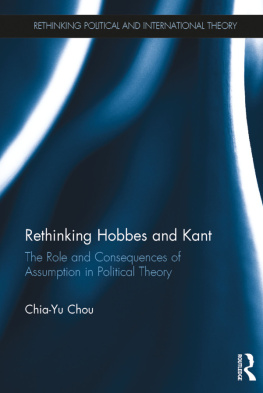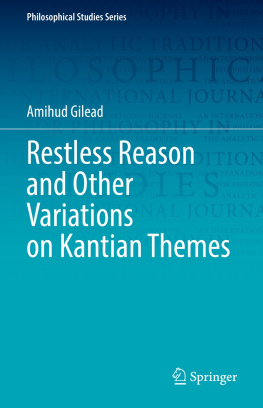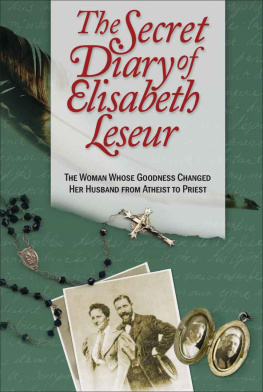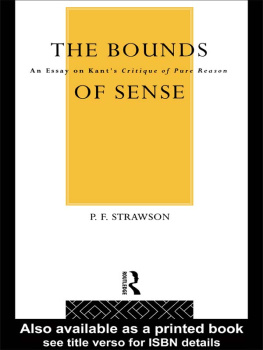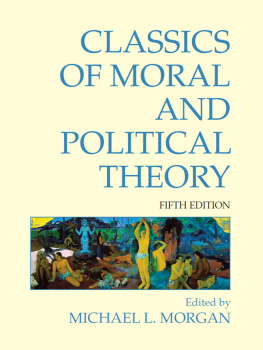Elisabeth Ellis - Kants Political Theory: Interpretations and Applications
Here you can read online Elisabeth Ellis - Kants Political Theory: Interpretations and Applications full text of the book (entire story) in english for free. Download pdf and epub, get meaning, cover and reviews about this ebook. year: 2012, publisher: Penn State University Press, genre: Politics. Description of the work, (preface) as well as reviews are available. Best literature library LitArk.com created for fans of good reading and offers a wide selection of genres:
Romance novel
Science fiction
Adventure
Detective
Science
History
Home and family
Prose
Art
Politics
Computer
Non-fiction
Religion
Business
Children
Humor
Choose a favorite category and find really read worthwhile books. Enjoy immersion in the world of imagination, feel the emotions of the characters or learn something new for yourself, make an fascinating discovery.
- Book:Kants Political Theory: Interpretations and Applications
- Author:
- Publisher:Penn State University Press
- Genre:
- Year:2012
- Rating:3 / 5
- Favourites:Add to favourites
- Your mark:
- 60
- 1
- 2
- 3
- 4
- 5
Kants Political Theory: Interpretations and Applications: summary, description and annotation
We offer to read an annotation, description, summary or preface (depends on what the author of the book "Kants Political Theory: Interpretations and Applications" wrote himself). If you haven't found the necessary information about the book — write in the comments, we will try to find it.
Kants Political Theory: Interpretations and Applications — read online for free the complete book (whole text) full work
Below is the text of the book, divided by pages. System saving the place of the last page read, allows you to conveniently read the book "Kants Political Theory: Interpretations and Applications" online for free, without having to search again every time where you left off. Put a bookmark, and you can go to the page where you finished reading at any time.
Font size:
Interval:
Bookmark:


| A | Anthropology is the short title for Anthropology from a Pragmatic Point of View (1798). In Anthropology, History, and Education, edited by Gnter Zller and Robert B. Louden (Cambridge University Press, 2007). |
| CB | Conjectural Beginning is the short title for Conjectural Beginning of Human History (1786). In Anthropology, History, and Education, edited by Gnter Zller and Robert B. Louden (Cambridge University Press, 2007). |
| CF | Conflict is the short title for The Conflict of the Faculties (1798). In Religion and Rational Theology, edited and translated by Allen W. Wood and George di Giovanni (Cambridge University Press, 1996). |
| CJ | Judgment is the short title for Critique of the Power of Judgment (1790). In Critique of the Power of Judgment , edited by Paul Guyer, translated by Paul Guyer and Eric Matthews (Cambridge University Press, 2000). |
| CPR | Critique of Pure Reason (1781 [cited as A]/1787 [cited as B]). In Critique of Pure Reason , edited, translated, and with an introduction by Paul Guyer and Allen W. Wood (Cambridge University Press, 1998). |
| CPrR | Critique of Practical Reason (1788). In Practical Philosophy, translated and edited by Mary J. Gregor, introduction by Allen W. Wood (Cambridge University Press, 1996). |
| GW | Groundwork is the short title for Groundwork of the Metaphysics of Morals (1785). In Practical Philosophy, translated and edited by Mary J. Gregor, introduction by Allen W. Wood (Cambridge University Press, 1996). |
| MM | Metaphysics of Morals (1797) contains two parts: Doctrine of Right is the short title for the first half of the Metaphysics of Morals ; Doctrine of Virtue is the short title for the second half of the Metaphysics of Morals . In Practical Philosophy, translated and edited by Mary J. Gregor, introduction by Allen W. Wood (Cambridge University Press, 1996). |
| OT | Orient in Thinking is the short title for What Does It Mean to Orient Oneself in Thinking? (1786). In Religion and Rational Theology, translated and edited by Allen W. Wood and George di Giovanni (Cambridge University Press, 1996). |
| P | Pdagogik is the short title for Kants Lectures on Pedagogy (1803). In Anthropology, History, and Education, edited by Gnter Zller and Robert B. Louden (Cambridge: Cambridge University Press, 2007). |
| PP | Perpetual Peace is the short title for Toward Perpetual Peace (1795). In Practical Philosophy, translated and edited by Mary J. Gregor, introduction by Allen W. Wood (Cambridge University Press, 1996). |
| RE | Religion is the short title for Religion Within the Boundaries of Mere Reason (1793). In Religion and Rational Theology, edited and translated by Allen W. Wood and George di Giovanni (Cambridge University Press, 1996). |
| TP | Theory and Practice is the short title for On the Common Saying: That May Be Correct in Theory, but It Is of No Use in Practice (1793). In Practical Philosophy, translated and edited by Mary J. Gregor, introduction by Allen W. Wood (Cambridge University Press, 1996). |
| UH | Universal History is the short title for Idea for a Universal History with a Cosmopolitan Aim (1784). In Anthropology, History, and Education, edited by Gnter Zller and Robert B. Louden (Cambridge University Press, 2007). |
| VN | Vigilantius is the short title for Kant on the Metaphysics of Morals, Vigilantiuss Lecture Notes (179394). In Lectures on Ethics , edited by Peter Heath and J. B. Schneewind, translated by Peter Heath (Cambridge University Press, 1997). |
| WE | Enlightenment is the short title for An Answer to the Question: What Is Enlightenment? (1784). In Practical Philosophy, translated and edited by Mary J. Gregor, introduction by Allen W. Wood (Cambridge University Press, 1996). |
Font size:
Interval:
Bookmark:
Similar books «Kants Political Theory: Interpretations and Applications»
Look at similar books to Kants Political Theory: Interpretations and Applications. We have selected literature similar in name and meaning in the hope of providing readers with more options to find new, interesting, not yet read works.
Discussion, reviews of the book Kants Political Theory: Interpretations and Applications and just readers' own opinions. Leave your comments, write what you think about the work, its meaning or the main characters. Specify what exactly you liked and what you didn't like, and why you think so.




